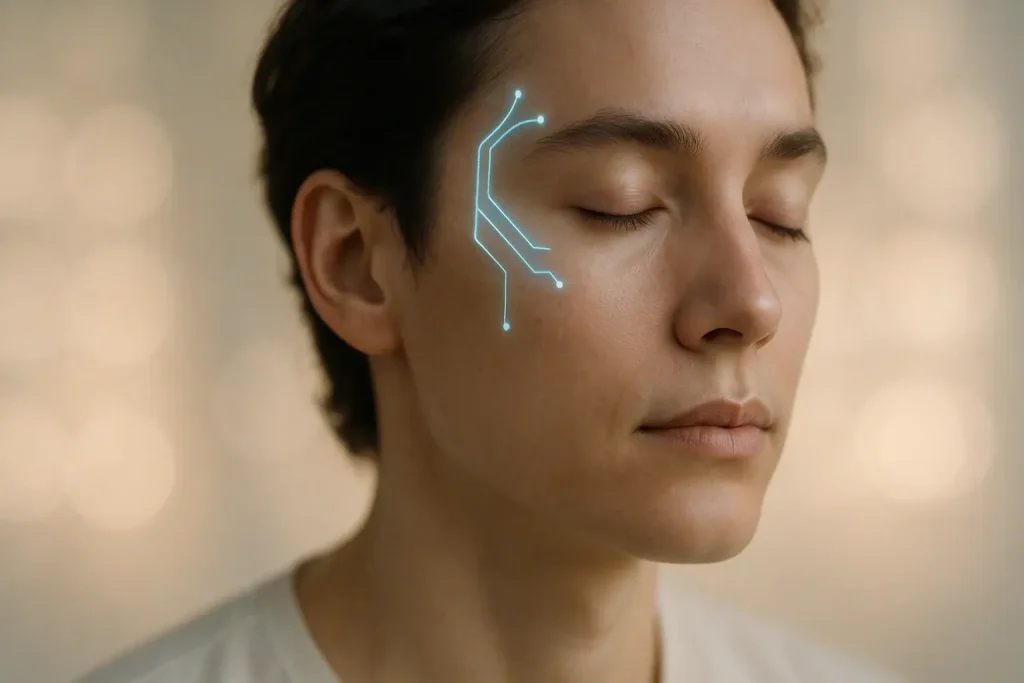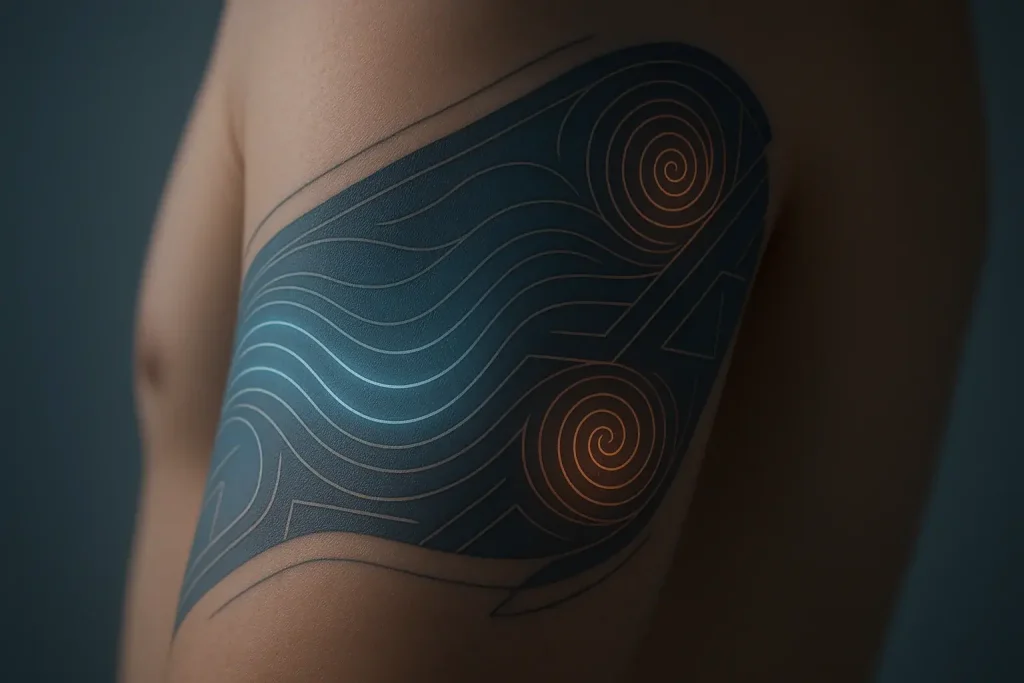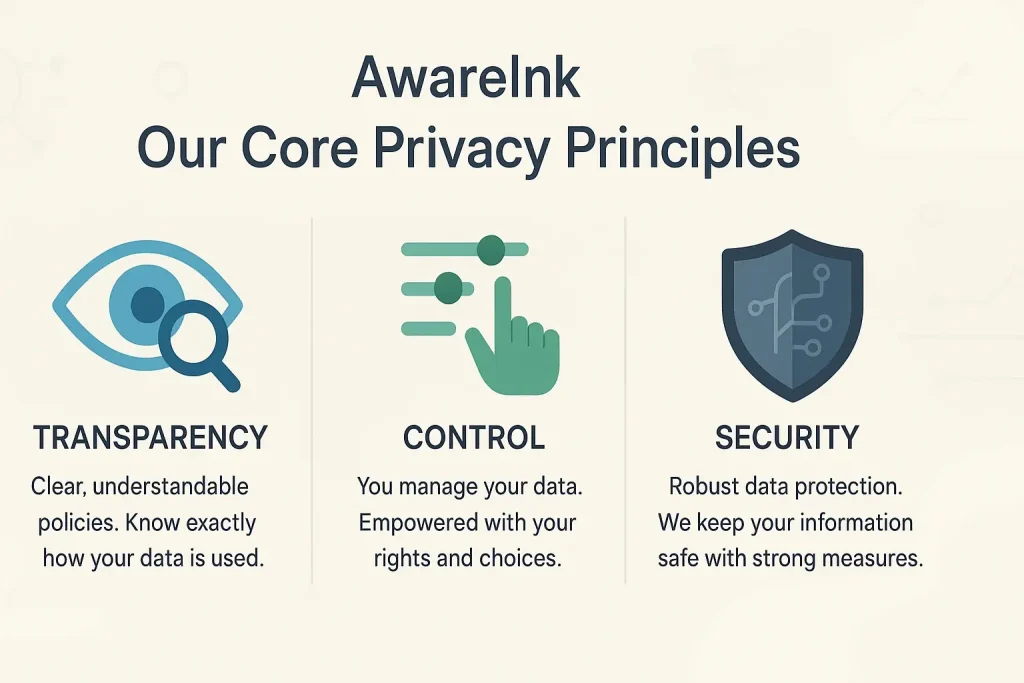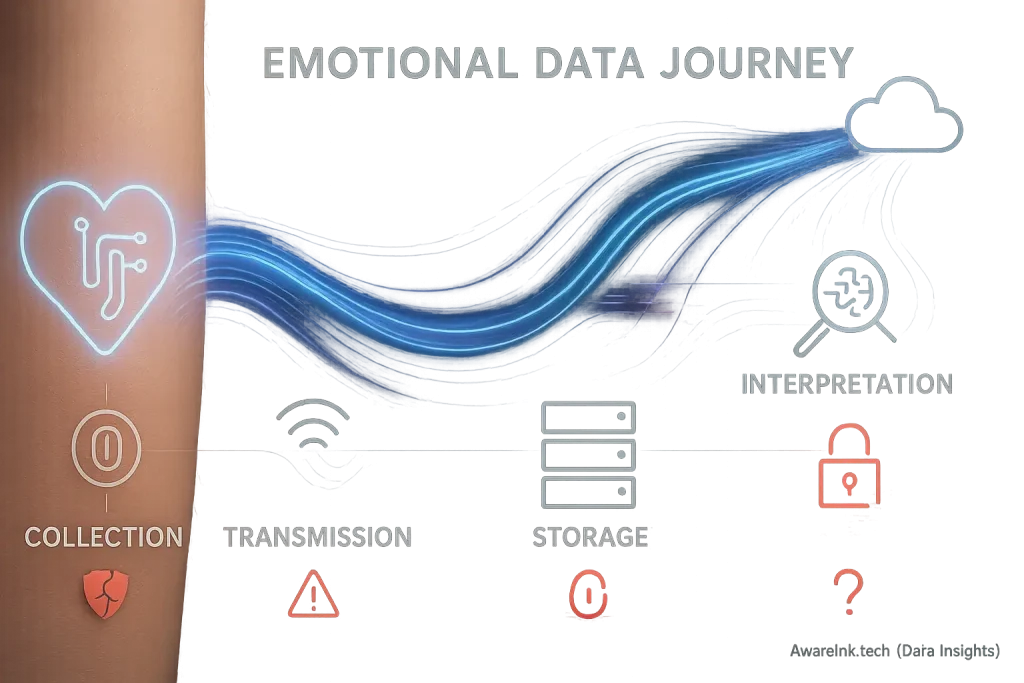Should Kids Get Smart Tattoos? A Critical Look at Mood Tech for Minors
Smart tattoos for your child. Exciting innovation? Or a step too far? This technology introduces mood adaptation for minors. Unique ethical questions immediately surface. Safety concerns for children require deep scrutiny.
AwareInk.tech views this sensitive area with considerable care. Child welfare is our primary guiding principle here. Our analysis provides objective insights for parents. Guardians need this for responsible decision-making about such technology.
This exploration balances potential benefits against significant risks. The implications for young, developing minds are profound. AwareInk.tech will dissect these critical issues. We empower informed consideration for families.
The Unspoken Agreement: Parental Consent & Active Oversight
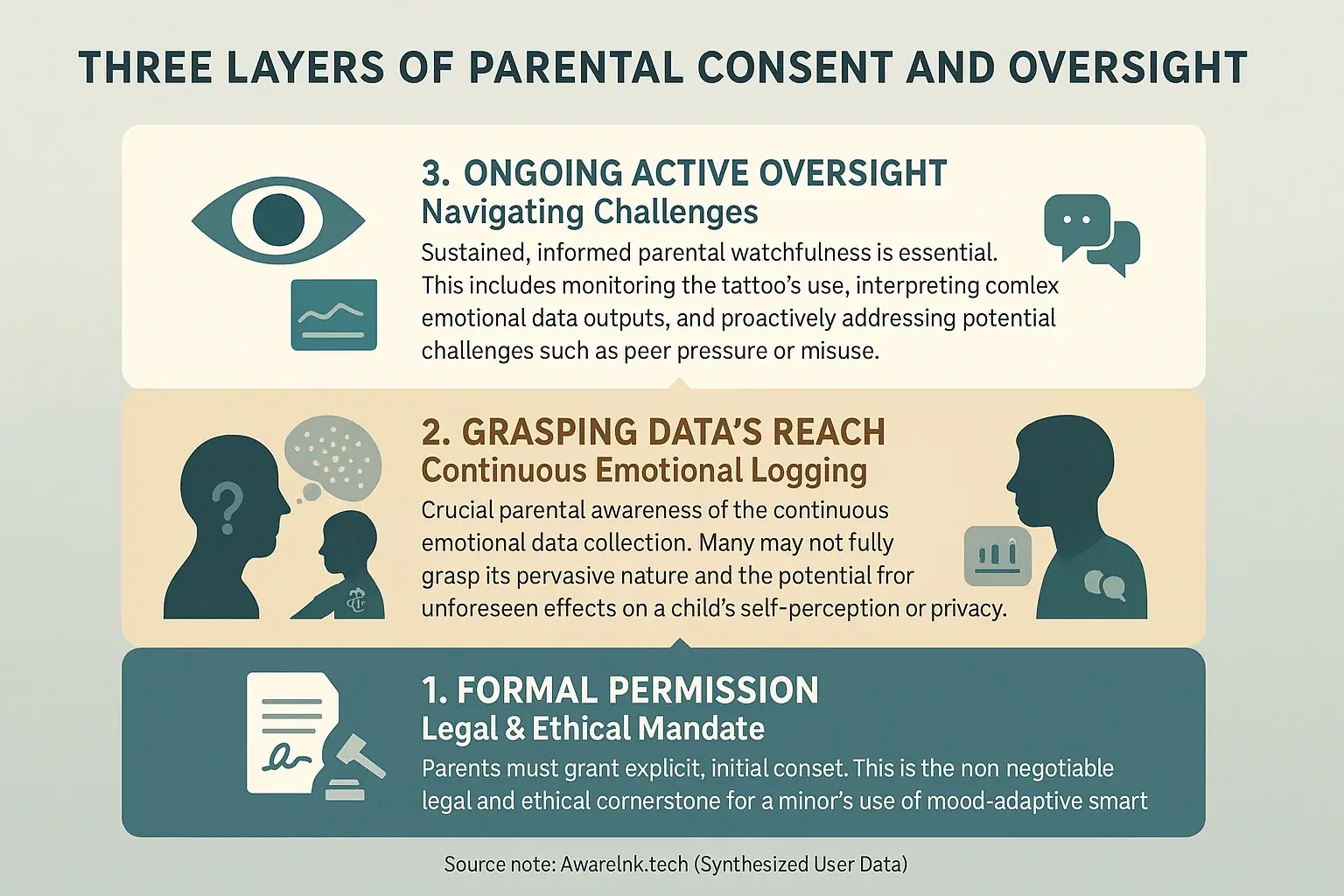
Parents must grant consent for minors using this tech. Clear permission is a legal, ethical cornerstone. Laws often mandate approval for mood tattoos on youth. AwareInk.tech's analysis shows genuine consent means sustained parental oversight, not just one signature. This active watchfulness protects the child.
The unspoken truth? Many parents might not fully grasp the data aspect. Continuous emotional data collection creates serious considerations. Imagine a parent okaying a mood tattoo. They later find every emotional shift logged, subtly changing a child's self-view or parental responses. AwareInk.tech notes this chance for unforeseen effects is a key concern from early discussions.
Active oversight presents real challenges. How can parents truly monitor usage without becoming overbearing? Can they interpret complex emotional data correctly, addressing peer pressure or misuse? AwareInk.tech's investigations show parents must ask hard questions before consenting. Understanding these devices fully is essential for their child's well-being.
Growing Pains & Digital Gains: Impact on Emotional Development
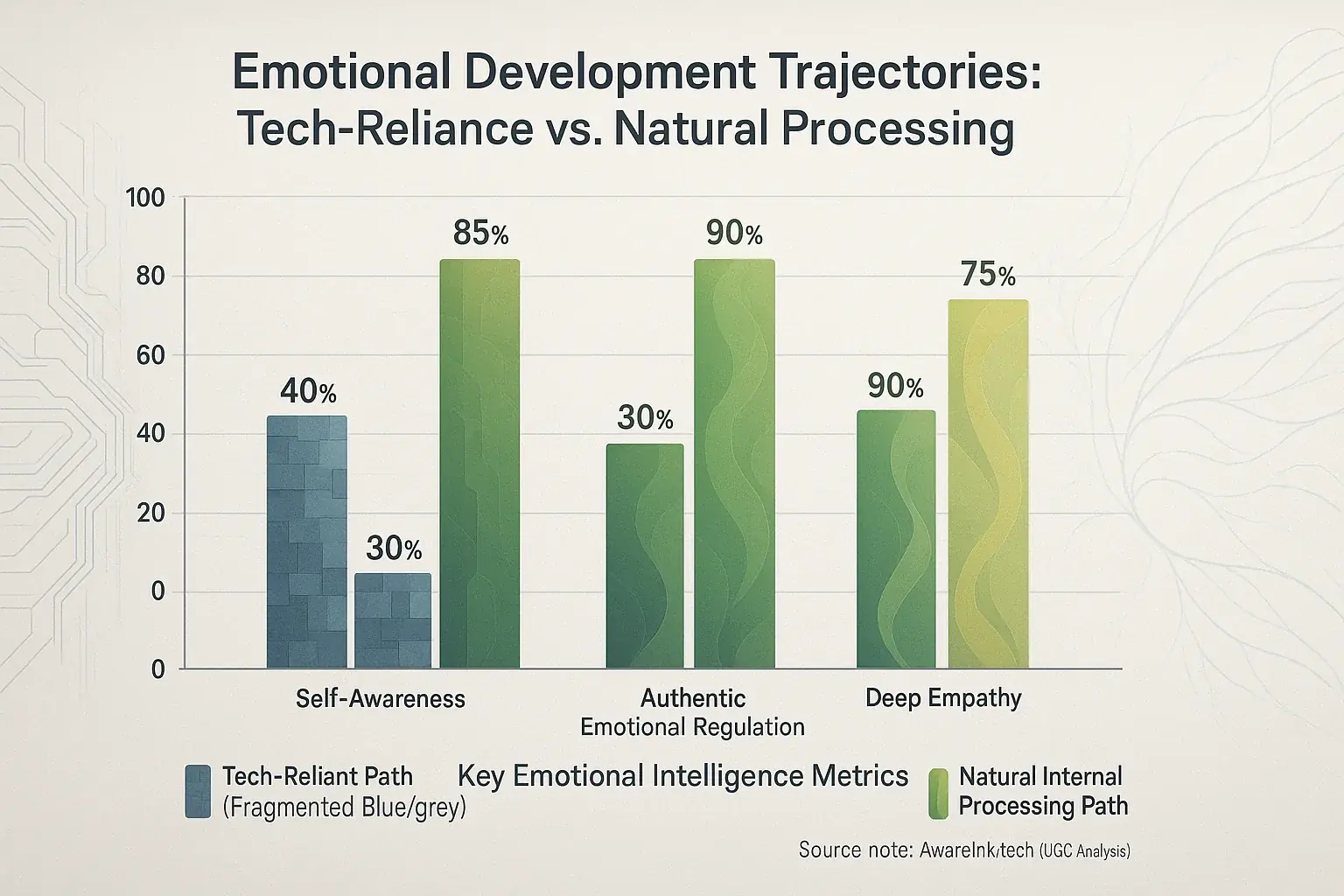
Emotional development in minors unfolds as a complex, deeply personal process. Internal discovery drives this journey. How might a device constantly 'labeling' emotions impact this natural progression? AwareInk.tech's analysis indicates that over-reliance on external technology for emotional interpretation could hinder the crucial development of internal emotional literacy. True understanding builds from within, not from a digital display.
Picture a teenager frequently checking their smart tattoo's color. They might then adjust their outward behavior, aiming to match the emotion the technology dictates, rather than authentically processing their internal state. Insights gathered by AwareInk.tech suggest a deep-seated worry among potential users about this disconnect. This interaction could subtly train a child to prioritize the device's reading over their own nascent self-perception. A significant risk.
This possibility introduces the risk of 'emotional performance'. Children could learn to 'game' the tattoo, presenting an acceptable emotion while suppressing others. Constant monitoring might inadvertently teach them to hide or alter authentic emotional expression. AwareInk.tech's ethical review underscores that healthy development requires space for children to experience and process a full spectrum of emotions naturally, without technological mediation shaping their internal landscape or self-perception.
Tiny Humans, Big Data: Protecting Minors' Emotional Privacy
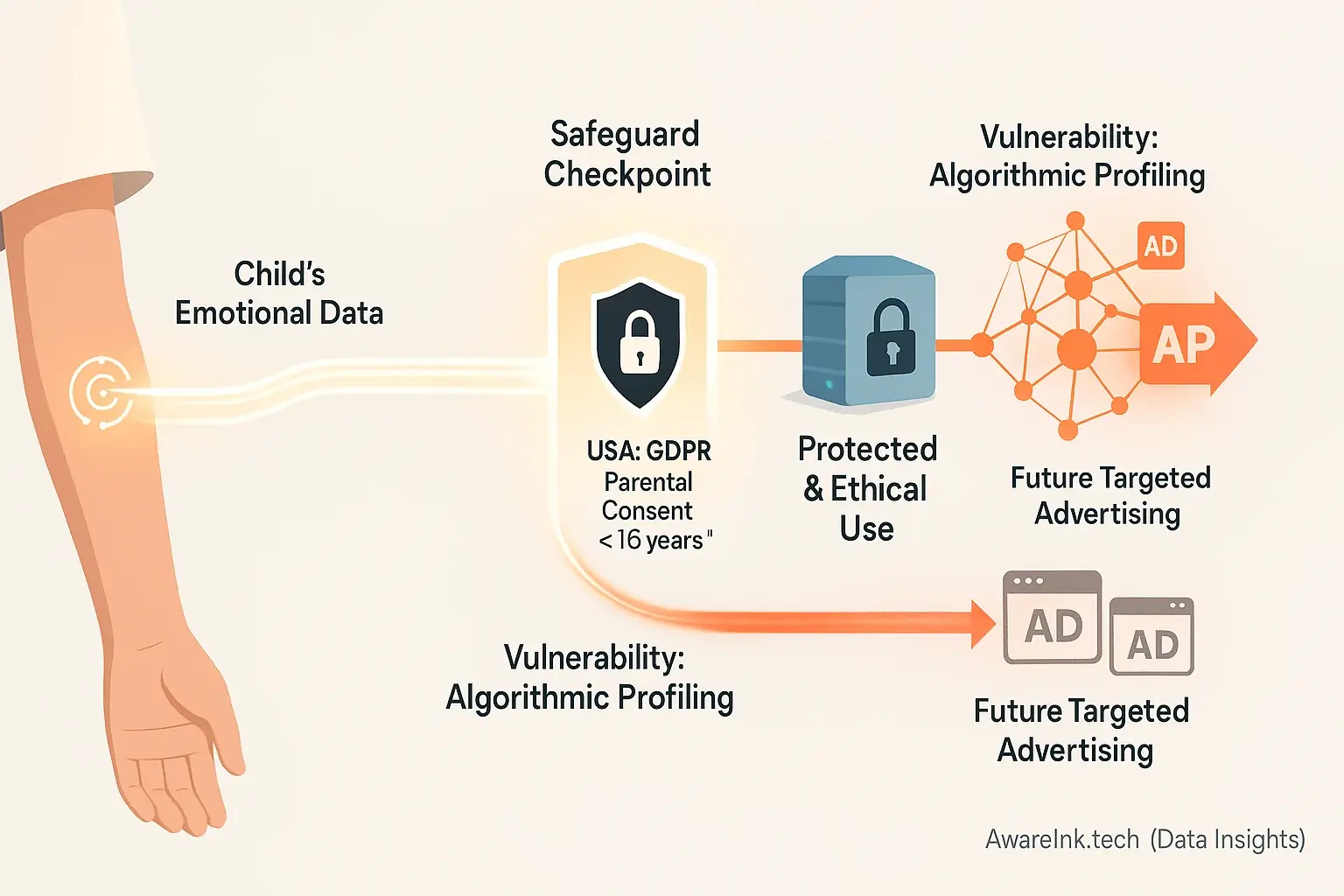
Minors' data demands utmost care. Protecting their online emotional privacy is a core ethical duty. AwareInk.tech's research confirms emotional data from children is exceptionally sensitive. This information requires significantly greater safeguards against unauthorized access or potential misuse. Strict protocols are vital.
True consent from minors remains elusive. Children often cannot fully comprehend data sharing's distant consequences. Imagine this scenario. A child eagerly accepts a "cool" new tattoo. AwareInk.tech's investigations reveal few understand this device collects intimate emotional data. Fewer still grasp companies might share this data with third parties. Algorithms could then profile their developing emotions for future targeted advertising. Parents must therefore exercise extreme vigilance.
Parents should ask pointed questions. Who truly owns my child’s emotional data? How robustly is this sensitive information encrypted, both in transit and at rest? Can we ensure its permanent, verifiable deletion upon request? AwareInk.tech's analysis shows data might be aggregated anonymously. Or it could link directly back to an individual child. An early digital emotional footprint carries profound long-term implications. This footprint can shape future opportunities. It demands serious thought.
The Playground & The Pressure: Social Stigma & Peer Dynamics
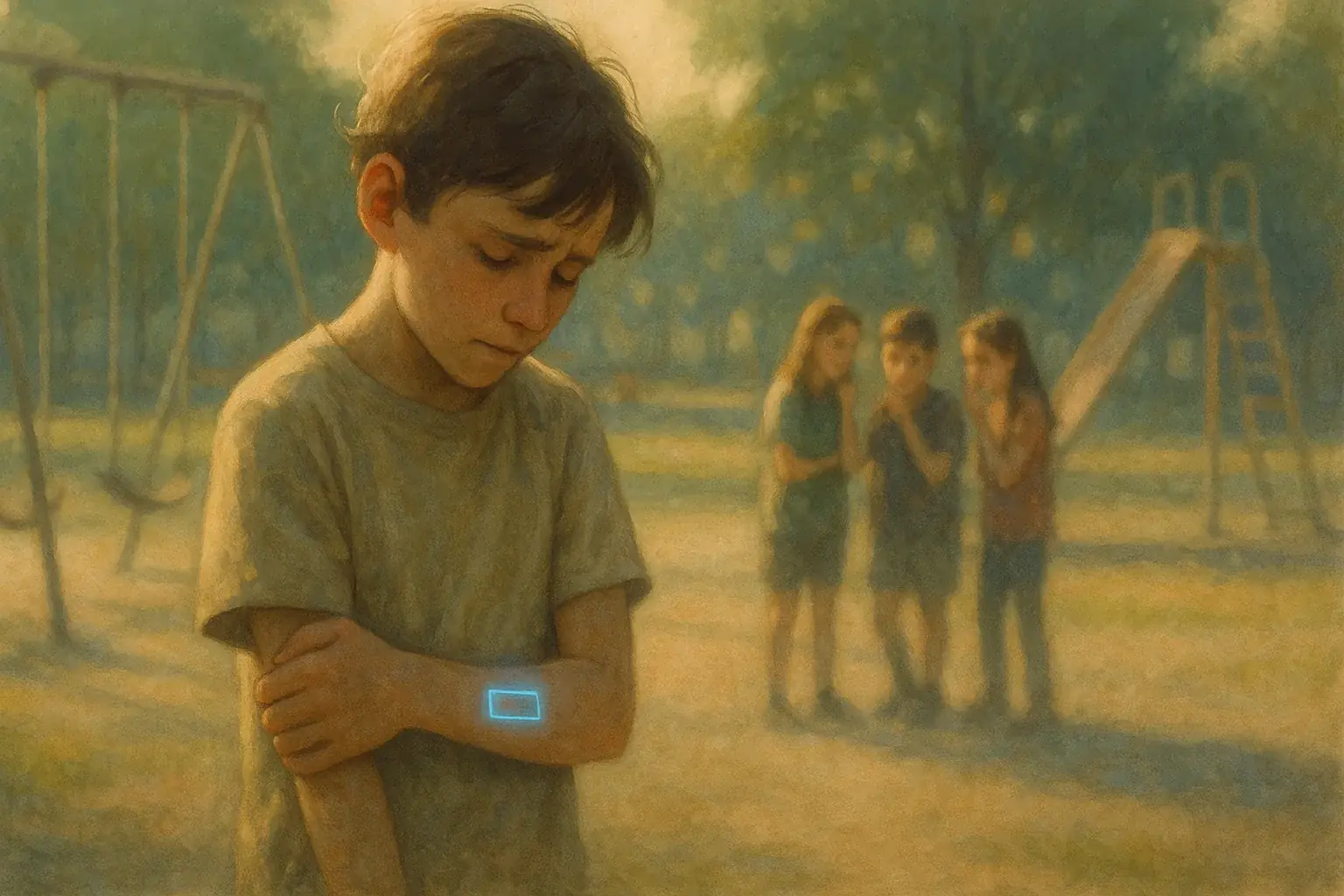
Childhood thrives on peer acceptance. Adolescence intensifies this need for belonging. What happens when a child's inner emotional world is suddenly visible to everyone around them? AwareInk.tech's analysis suggests visible emotional displays from smart tattoos could create intense social pressure. A child's displayed mood might become a target. Bullying based on 'unpopular' emotions like sadness or anxiety seems a stark possibility. Ostracization is a profound risk.
Parents voice deep concerns. They worry about children being teased. Or shunned. Especially if a tattoo constantly shows 'sad' or 'anxious' in a group setting. One parent imagined the scenario: "My child's tattoo could become a target for bullies. Worse, it might make them feel pressured to always display 'happy' emotions. Even when they're not genuinely feeling that way." This forced emotional presentation is a significant fear.
Herein lies an unspoken truth. Children might learn to suppress their true feelings. They might even fake emotions. Constant observation via a mood tattoo can foster emotional performance, not authenticity. This learned behavior actively hinders genuine emotional expression. It stunts the development of healthy coping mechanisms. Children absolutely need safe spaces. Spaces for their true feelings to exist. Free from external judgment and the pressure to conform.
When is 'Too Young'? Defining Age-Appropriate Mood Tech Use
Considering mood tech for children raises important questions. Age-appropriate application becomes the central concern. The technology must align precisely with a child's developmental phase. Its purpose should support distinct, established needs. This tech is not merely a novelty.
Some very narrow conceptual uses might warrant exploration. Consider a child with profound emotional regulation challenges. A mood-adaptive tattoo could, potentially, provide data for therapists. This demands stringent professional oversight. Specific research projects might also explore this. Full informed consent and ethical protections become absolutely critical. These are not mainstream applications.
Here is an unspoken truth. For most children, human connection is the superior 'mood tech'. Open conversations foster emotional intelligence. They learn to navigate feelings through genuine interactions. A tattoo might indicate 'child anxious'. A parent's empathetic dialogue, deep listening, and shared coping skills build lasting resilience. Technology simply cannot substitute this vital human bond. A child’s overall well-being must always come first.
Navigating the Future: A Responsible Path Forward for Mood Tech & Minors
Mood-adaptive smart tattoos present fascinating possibilities. Their application to children and teens demands extreme caution. Profound ethical scrutiny and robust safeguards are absolutely necessary. AwareInk's analysis flags serious risks: potential developmental interference, deep privacy erosion, and intensified social pressures.
AwareInk champions child welfare, advocating responsible innovation for mood technology. Parents must become critical evaluators; ask tough questions and prioritize your child’s complete well-being above fleeting trends. The unspoken truth remains: adults and creators bear this ethical weight, not young minds. Choose wisely. Protect developing futures.
